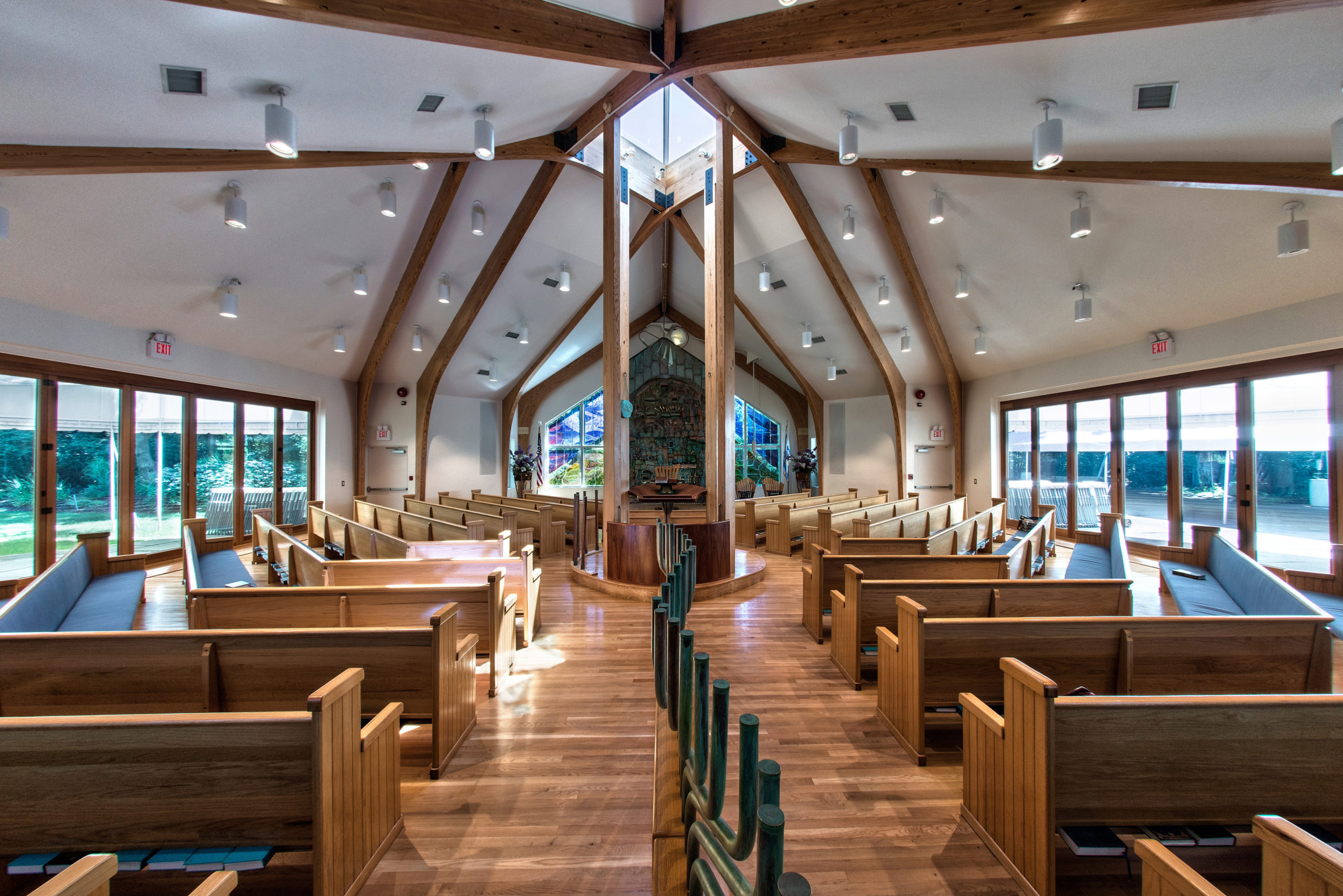
Jews last week celebrated Shavuot, which is both a harvest festival and the commemoration of God’s giving of the Torah to the Jewish people. A lucky handful of members of the Hampton Synagogue in Westhampton Beach were able to take part in services because the synagogue became one of the first local houses of worship to reopen its doors on a limited basis as the coronavirus pandemic recedes.
Rabbi Marc Schneier, the congregation’s leader, who also happens to serve on Governor Andrew Cuomo’s committee for reopening the state’s economic, cultural, and religious life, said the synagogue is taking strict precautions to safeguard the health of congregants.
A total of 10 people, including the rabbi, are allowed to attend any service. Before they are allowed to enter the synagogue, congregants are required to preregister and show proof that they either tested negative for coronavirus or tested positive for the antibody to it — within the previous week. After they have their temperature taken, they are escorted to a handwashing station, where they are required to wash their hands for at least 20 seconds. Instead of the standard requirement of 6 feet of space between people, the synagogue requires 8.
“We are living in extraordinary times, but extraordinary times call for extraordinary measures,” Rabbi Schneier said. “We are leading the way with what we believe should be the standards to follow.”
The congregation has also hired a contact tracer who will check in with all of the congregants who attended any one of the eight services, including three on the sabbath, held during Shavuot to make sure they have not experienced any symptoms of COVID-19.
The rabbi said the congregation’s requirements have caught the attention of Suffolk County Executive Steve Bellone, who has “referred to our guidelines as the gold standard.”
Rabbi Schneier said he was honored to serve on the governor’s committee to help guide the reopening of houses of worship. Last week alone, he said he attended three different online meetings. “I, for one, took the position that it is very difficult for houses of worship to have one size that fits all,” he said.
He said the Hampton Synagogue can essentially transform its sanctuary into an outdoor facility, which could give it advantages over smaller synagogues and churches. On the other hand, he said, a proposal to allow drive-in services may work “for my Christian, Muslim, or reformed Jewish friends, but it doesn’t work for me because as an orthodox Jew, I don’t use a car on the sabbath.”
The biggest challenge facing the governor’s committee is when to allow houses of worship to expand the number of people who can attend services. “We have to somehow expand this number of 10, which I think will happen in the coming weeks,” he said. “We have to be very cautious. We have to reopen in a very controlled and careful manner.”
One unforeseen advantage of the pandemic, Rabbi Schneier said, is the fact that the Hampton Synagogue’s remote services have been broadcast on the Jewish Broadcasting Service, channel 138, which reaches some 49 million homes. As many as 200,000 people have tuned into the synagogue’s virtual services, which he attributed to its reputation for sacred music.
The rabbi said people of faith need to persevere, despite the restrictions imposed on them by the coronavirus. “It’s not the houses of worship that are essential,” he said, “but faith that is essential. We will get through this.”